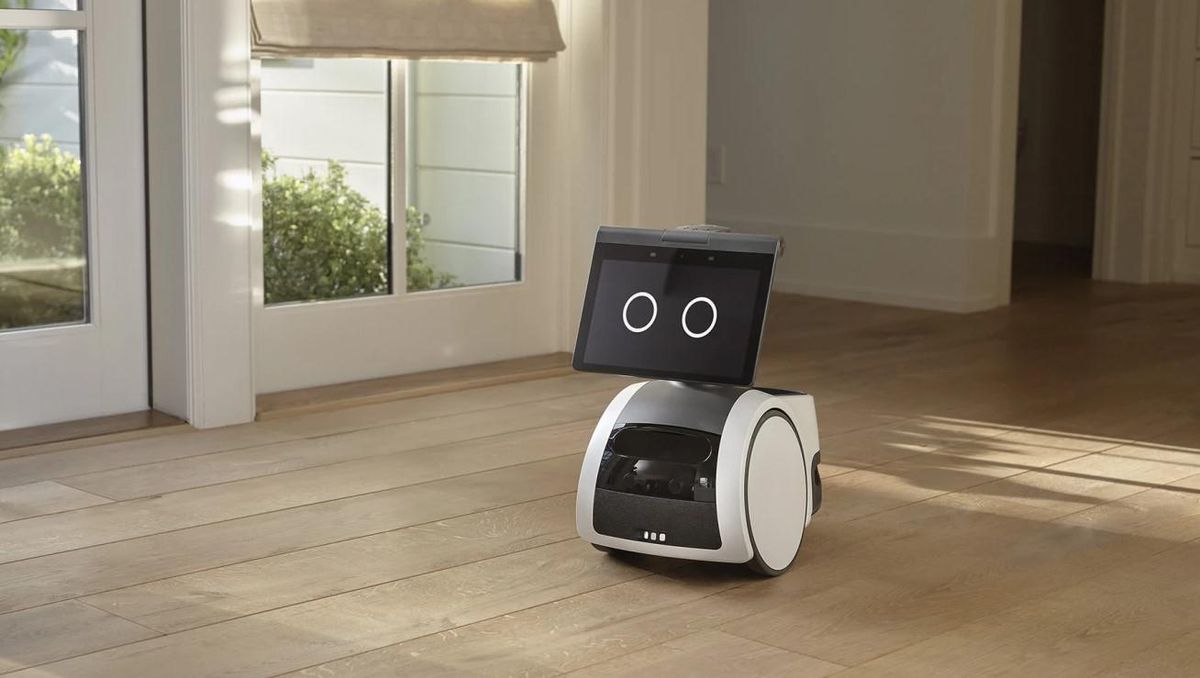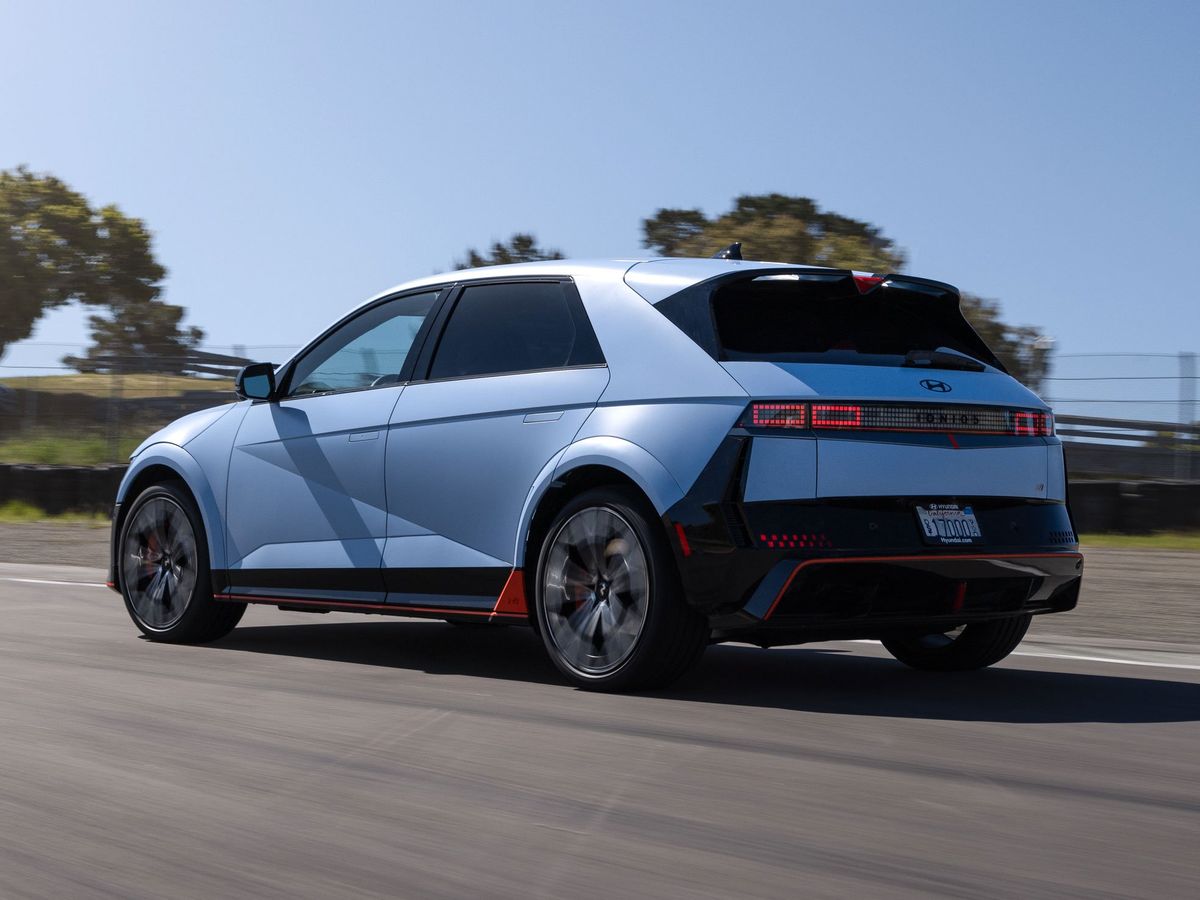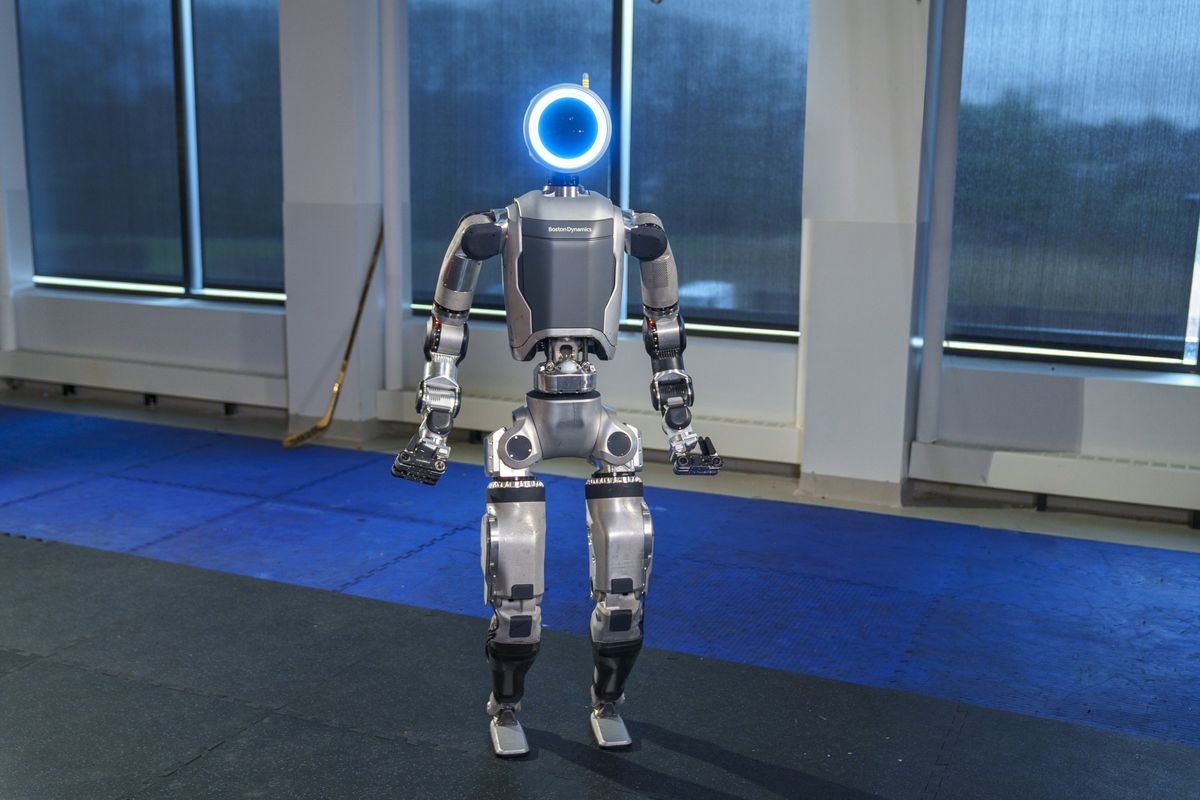Yesterday, Amazon announced a mobile home robot called Astro, which we've been expecting for the past several years. Astro's got wheels. It's got cameras. It's got a screen. It has two cup holders for some reason. It costs $1,000. I am very, very confused.
"What are we going to do with a robot," a woman asks in this PR video about Astro. Watch as the rest of the video fails to answer that very question, which is a question you'd ideally want to have completely locked down before you build a robot and shoot a PR video:
According to Amazon, the following "are just a few of the ways Astro can be used around the house," although I'm frankly astonished they were able to come up with even this many:
Brings Alexa to you around the home: When you're home, Astro brings the benefits of Alexa to you, including information, entertainment, smart home control, and more.
Check in on your home: When you're away, Astro helps provide the peace of mind that comes with knowing your home is safe. Astro can move autonomously around your home, navigate to check in on specific areas, show you a live view of rooms through the Astro app, or even send alerts if it detects an unrecognized person.
Provides peace of mind with Ring: Astro also works with Ring, adding to the peace of mind in keeping your home safe. With Ring Protect Pro, a new subscription service from Ring, you can set Astro to autonomously patrol your home when you're out, [and] proactively investigate when an event is detected.
Helps you look out for loved ones: Astro will be able to help customers who are remotely caring for elderly relatives and loved ones.
Oh, that's how they came up with four, because two of them are the same. But of course, Amazon is quite correct, Astro can certainly be used around the house in these ways. As with any robot, however, a crucial question to ask is whether that robot is really the best way of solving a problem, or if instead the robot is actually just a much flashier way of doing something that could be done more efficiently through existing non-robotic technology. In other words, it's not enough for a robot to be useful, it also has to be uniquely useful in a way that doesn't place additional burdens of complexity or efficiency or cost on the end user. And I just don't see that working out for Astro. Let's take a closer look at what it can do:
Brings Alexa to you around the home: Sure. But you know how else you can have Alexa around your home? Echo Dots, which are $40 each. Also, you can put Echo Dots both upstairs and downstairs, so if you have a multi-floor home, you're going to need more than just an Astro anyway if you want to be able to talk to Alexa everywhere.
Check in on your home: This is a common application for mobile home robots to advertise. In fact, Amazon already has a mobile home robot that can check in on your home—the Ring drone. I don't think either Astro or the Ring drone work much better than having stationary security cameras in the relevant areas of your home, and in many ways, the robots are far less useful than such cameras. The robots are also way more expensive. Read more about this in our article on the Ring security drone.
Provides peace of mind with Ring: Uh, see above?
It's not enough for a robot to be useful, it also has to be uniquely useful in a way that doesn't place additional burdens on the end user.
Helps you look out for loved ones: This one is slightly more complicated. If we acknowledge the fact that there are situations in which not being able to reach a family member via phone might be a concern, the problem that you face with Astro is that people are often uncomfortable having a robot with mobility and cameras being accessible from outside their home without their in-the-moment consent. I ran into this issue when testing the Ohmni telepresence robot with my partner's elderly and distant relative: telepresence was certainly nice to have there, but it came along with privacy concerns. The simple fact is that people don't want to be surprised by a mobile robot in their home. Amazon, we should note, seems to have taken privacy quite seriously with Astro. Users can designate off-limits areas, and there are easy ways to disable (in hardware) audio, video, and mobility. But if you do that, then the advantages that Astro offers go away. Users therefore have to choose between being able to have a robot check on them when they might need it, and maintaining their expectation of privacy. It's not Amazon's fault that telepresence robots work this way, but it's also not something that they've solved with Astro.
The video showed some other functions that Amazon chose not to enumerate in their blog post, so let's address those too:
Mobile telepresence:I am a fan of mobile telepresence. I think there's tangible value there. But Astro is not a good mobile telepresence platform, because that's not what it was designed for. Amazon's PR video, you'll notice, shows the telepresence application in pretty much the only possible way where the small size of the robot wouldn't be incredibly annoying: interacting with someone who is literally on the floor. If you were instead trying to talk to a standing (or even sitting) adult, you'd be looking up their nose, or worse. Amazon itself has better remote presence solutions; they're not mobile, but putting a stationary telepresence device on a table or countertop makes much more sense than a floor-level robot.
Dancing: Like every social home robot video has a bizarre dance scene like this. Who actually does this? Is this a real thing that happens?
Beer delivery: Ask yourself the obvious question of how that beer got placed into the robot in the first place. I guess if you want to pay $1,000 to not have to walk from the fridge to the living room, that's entirely up to you.
Now, just because I'm exceedingly skeptical about the usefulness and cost effectiveness of Astro doesn't mean that it's a bad robot. Doing simultaneous location and mapping (SLAM) in real home environments is a significant challenge. The mapping and navigation looks smooth, and the robot looks brisk enough to keep up with a walking human. I like the periscope idea, despite how fragile it looks. And the HRI elements seem well thought-out. Having said all that, it's important to remember that we've only seen Astro operate in what are presumably heavily edited PR videos, which may not accurately represent the capabilities of the robot. Here's a bit more detail about the technical side of Astro (mostly interesting), along with some other comments (mildly infuriating).
Several folks in the video talk about making science fiction a reality, which is a predictable and entirely inevitable expectations fail for any robot. We've learned over and over again that with a robot like this, it's super important to keep expectations in check, which brings me to one of the other comments in the video, about how this type of product didn't exist before. It totally did. Other companies have tried it and not gotten it to work. Maybe not this exact combination of features because every robot is different, but autonomous mobile home robots? Yeah, we've seen them before, and we know how hard it is, and I'm not convinced that Astro is different enough or better enough to somehow succeed where others have not. As much as I respect Henrik Christensen, I do not understand at all when he says that "Astro is a huge step forward." Maybe I'm missing something, but I just don't get it.
The one thing that really did resonate with me in that video was someone saying that Astro is just Amazon's first robot like this, and that there will be more. Perhaps the best way to look at Astro is as a learning experience for Amazon, and fortunately, unlike many other companies who tried building similar robots, Amazon can almost certainly survive Astro not turning out to be a commercial success. I recognize that it seems premature to be so pessimistic about it, but I really feel like we're looking at just another home robot without a really useful and compelling application. And for $1,000 if you're part of the Day 1 Editions program, and $1,500 for everyone else, Astro seems like it's going to be a very hard sell.
Evan Ackerman is a senior editor at IEEE Spectrum. Since 2007, he has written over 6,000 articles on robotics and technology. He has a degree in Martian geology and is excellent at playing bagpipes.




